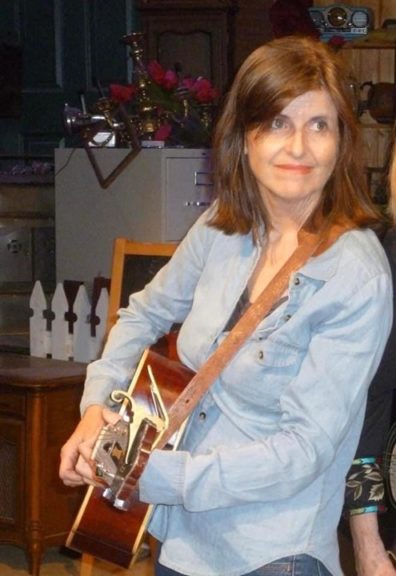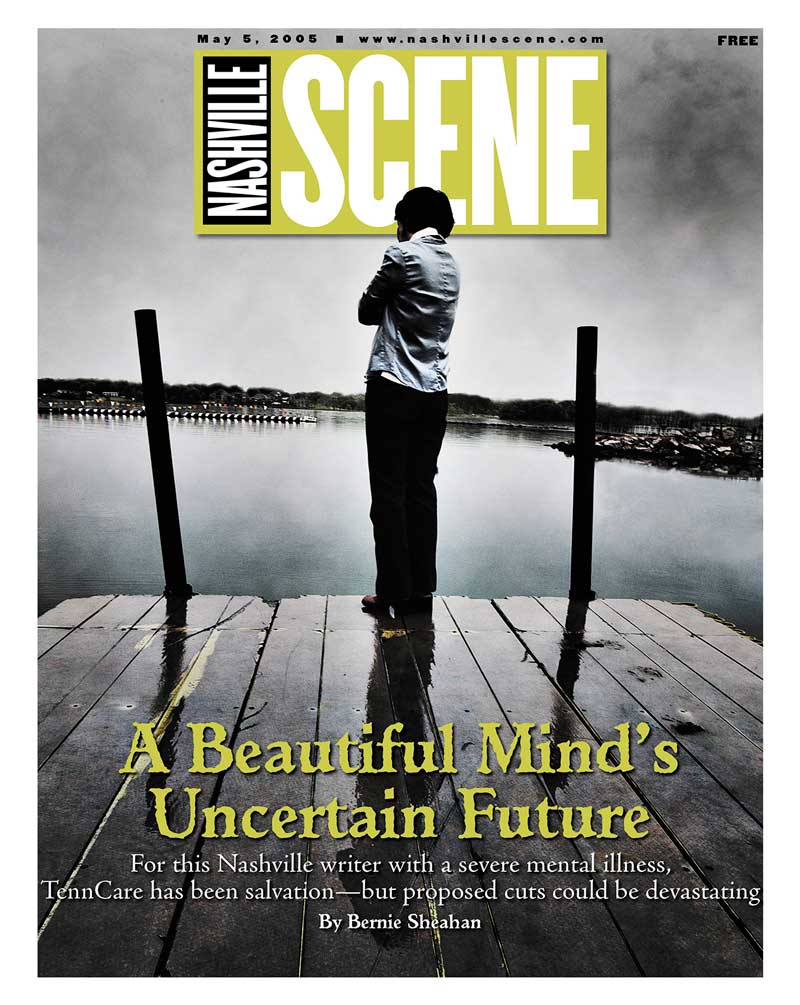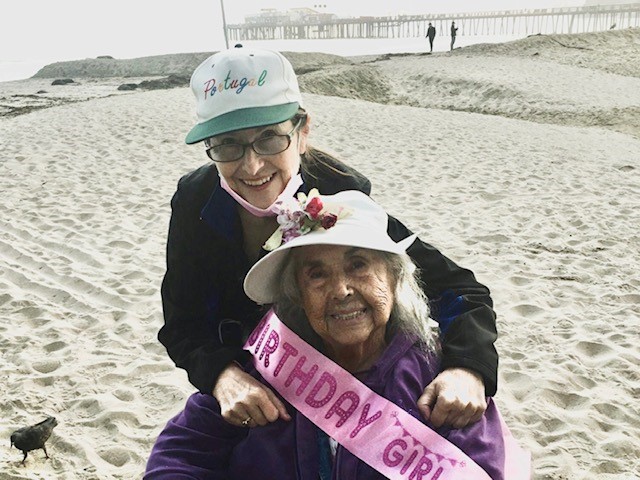Bernie Sheahan had a storied career in PR, radio, and as a columnist at the “Nashville Scene.” When her editor encouraged her to write an account of her very personal mental health journey, the cover story received incredible response and community support. In this inspiring podcast, we’ll learn how she manages her mental health, why coaching middle schoolers is a calling, and how being a family caregiver sparked a whole new interest in life.
Please tell us about your work history and what brought you to Nashville.
[When I arrived] I drove around and one of the things that I really loved about Nashville was that I saw all these old buildings and historical plaques, which I always stop and read. And I thought a city that loves and owns its history is a place that I could live. And Nashville got its hooks in me pretty soon because my original plan was, “Well, I’ll work for CBS in Nashville, help start the label, and then I’ll transfer back to the LA office in a year and a half or so.” But 25 years later … I loved Nashville right away. I loved the South… When we met, I was the PR director at Union Station in 1986 during the renovation and the first year of operation until they went chapter 13. I was only, let’s say five years into my life in Nashville, and I got to work on Homecoming ’86 and some other Tennessee aspects with the state of Tennessee through the PR firm, which was great.

Sheahan shares how her deep roots and family keep her grounded and how her friends helped save her life literally and figuratively. From playing Warner Brothers characters (including Bugs Bunny) at Marriott’s Great America to working in various public relations positions, her stories are so colorful. In addition, she recounts a hysterical story about Carl Perkins, Minnie Pearl, Ace Cannon, Alex Haley, and then Tennessee Gov. Lamar Alexander. Don’t miss this recounting of the cross-Tennessee Homecoming train trip from Johnson City to Memphis. It is such an accurate snapshot of Music City and Tennessee during that time. As the conversation continues, she talks about becoming a journalist and how she found her voice at the “Nashville Scene” including the origin of her very popular column “Hot Homes.”

Courtesy Nashville Scene
You also wrote another article that became a cover story. I believe the title was “A Beautiful Mind’s Uncertain Future.” Tell us about that experience.
That was another thing that I never would’ve done by myself. What had happened was that I was hospitalized over Christmas in 1991. It was actually the day after the “Nashville Scene” Christmas party, which is telling. I had been depressed for a long time, but not very many people knew except a few very close friends …
Sheahan shares the moving story that brought her to the medical community and how friends and a story assignment helped save her life. Her cover story prompted unprecedented engagement from readers, NAMI, and legislators to bolster a better understanding of and coverage (under TennCare) for those with mental health challenges.
Is writing a form of therapy for you?
Writing is very therapeutic, and this is how I manage my mental health today. I’m still on really good medication. That is, I think, number one… But also staying in touch with the people who know you and love you and staying in current communication [is critical] … it is easy with Facebook to think that you’re communicating or with texting that you are really connecting. I think that loneliness and a lack of connection cause depression and all kinds of other problems.
She goes on to talk about therapy, ADHD, and running as well as how she has been inspired by others (including one of our podcast guests) to stay active. In addition, she shares her passion for coaching participants in team sports – especially middle schoolers – and how that calling has positively impacted her life and her second chapter.
You’re such a nurturer, what you have learned about being a caregiver for your parents?
Caregiving is the best and worst thing. I actually was a caregiver for my mom for 16 years because she had health problems (on and off) before my dad died so my brother and I shared the caregiving. It became the most precious thing… And as you can imagine, there are certain things that only a daughter can do, which makes you even closer. The grief that you feel when someone that you’ve not just loved — but you have cared for all these years — it’s so profound.

In listening to this conversation, you will note references to friends and colleagues (some very notable) who have positively impacted Sheahan’s life. Here’s hoping this profound and emotional interview is the impetus for all of us to lift others up despite our adversities. We believe this journey of a 60-something reinventing herself and setting goals — including a renewed commitment to running after hearing our previous podcast with Janet Jernigan – may motivate you to move forward and implement changes so you can live your best life now. As Nike and Bernie say, “Just Do It.”

 This Squeeze the Day is brought to you by the All of Us Research Program from the National Institutes of Health. Learn how you can help change the future of health by participating in the program.
This Squeeze the Day is brought to you by the All of Us Research Program from the National Institutes of Health. Learn how you can help change the future of health by participating in the program. 
